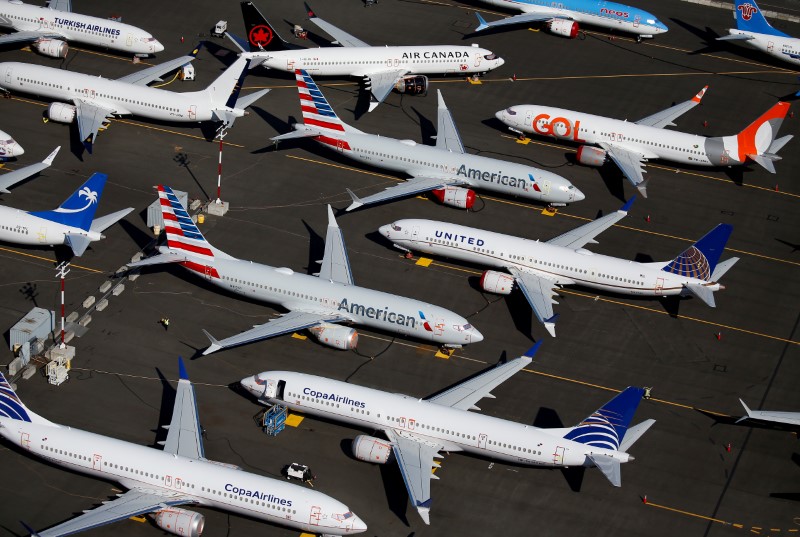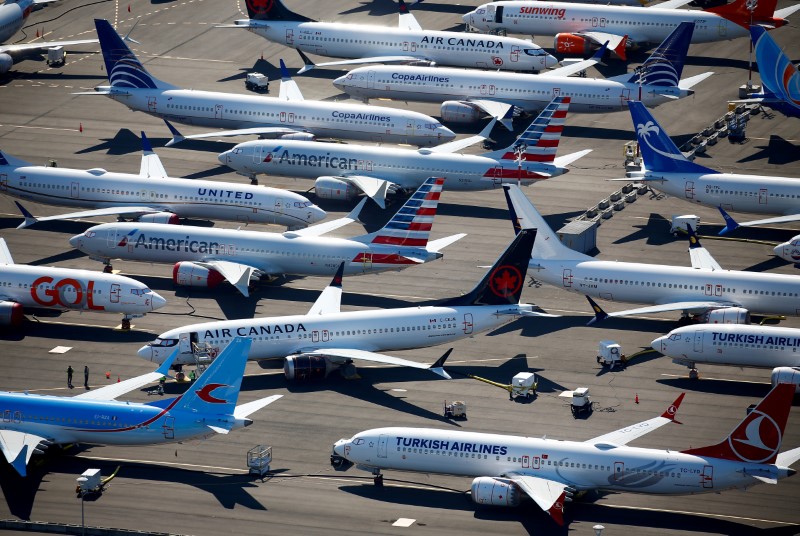By Eric M. Johnson
SEATTLE (Reuters) - Boeing Co (N:BA) plans to restart 737 MAX production by May, ending a months-long halt triggered by a safety ban on its best-selling jet after fatal crashes, people familiar with the matter said on Tuesday.
Boeing's planning hinges on the scale of disruptions from the fast spreading coronavirus, and U.S. regulators clearing the 737 MAX to return to service, a milestone Boeing still expects to reach in mid-2020.
One industry source said Boeing has asked some suppliers to be ready to ship 737 parts in April. Another person said production was planned to restart in May. A third person said coronavirus is throwing a wrench in Boeing's plans - they had initially hoped for April, but that fell to May.
"It'll be a very slow, methodical, systematic approach to warming the line up, and getting crews back in place," Boeing Chief Financial Officer Greg Smith told Reuters on Tuesday when asked about the May restart goal.
"Priority number 1 is getting customers' fleets back up," Smith said, adding that a production ramp up will be paired with clearing the MAX backlog. "We don't want to add to inventory."
Boeing ceased production of the jet in January as it struggled to win regulatory approvals and accrued a backlog of 400 undelivered jets.
The coronavirus pandemic has shattered global travel demand, upended lives for millions and wiped billions off Boeing's market value, compounding a year-old crisis over the grounding of the 737 MAX after crashes in Ethiopia and Indonesia killed 346 people.
Boeing said on Monday that it would halt production in its Washington state facilities, beginning on Wednesday, to reduce coronavirus risks.
Boeing has reported dozens of cases across its Seattle-area facilities, many of which were at its Everett hub north of Seattle. One worker died from the coronavirus, according to a friend's Facebook (NASDAQ:FB) tribute on Monday.
Boeing has told suppliers to halt shipments to its Seattle-area facilities, and has frozen hiring among other cash-saving measures.
Boeing is seeking $60 billion in U.S. government aid to prop up its finances and the embattled American aerospace supply chain.

Boeing has used the production lull to curb inefficiencies, improve quality and ease the plane's re-entry to the market.
